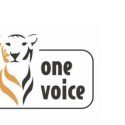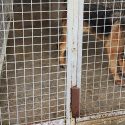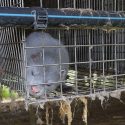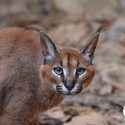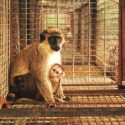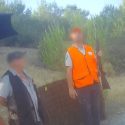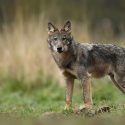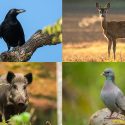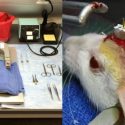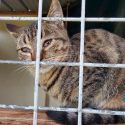Non-protected herds and wolves killed: Ferus, One Voice, and the Pôle Grands Prédateurs in court
Non-protected herds and wolves killed: Ferus, One Voice, and the Pôle Grands Prédateurs are filing two pleas in Doubs
20.12.2022
France
Non-protected herds and wolves killed: Ferus, One Voice, and the Pôle Grands Prédateurs in court
Wildlife
The Jura mountains are a wolf recolonisation front. The species has only reproduced there since 2019 and today there is an inventory of only two packs, including on the Swiss side. The status of this species therefore remains very precarious. However, following several attacks on young calves left in the field without their mother and with no protection, French public authorities prefer to kill wolves because they have decided to consider bovine herds as non-protectable: two animals have already been slaughtered this autumn including the mother of the pack in Risoux. A useless ‘solution’ that does not protect herds and wipes out families of wolves. And an illegal solution. Our associations have therefore filed a plea at the Besançon Administrative Tribunal against two decrees for defence shots signed by the Doubs Prefect on 10 October 2022.
Our legal arguments focus largely on two main areas:
The unenforceable nature and illegality of the technical note
The absolute ‘non-protectability’ of bovine (and equine) herds on principle focuses on a simple technical note from the Prefect coordinating the National Wolf Plan of 28 June 2019. This note has never been published so it is unenforceable and has no legal value.
This note highlights « unsuitable protection methods« , and for good reason! No research or serious testing of passive or active protection measures for bovines has actually been developed in France, while wolves have been back in our country for thirty years now.
As the technical note bluntly admits, it is « the State’s choice “not to make bovine and equine herds eligible for protection”« . In view of its unenforceable nature, this note cannot now base decisions on the authorisation of shooting at wolves under the exonerating framework of non-protectable herds.
The general nature of the ‘non-protectability’ rule for all bovine and equine herds is therefore perfectly legal.
Risk of a local population disappearing
In the « Guidance document on the strict protection of animal species of interest to the community pursuant to the Habitats Directive 92/43/CEE, established by the European Commission for the application of articles 12 and 16 of the Habitats Directive » (guidance document on which the French State must rely to develop its regulations with regard to the protection of wolves), it indicates that ‘ »an appropriate evaluation of the impact of a particular exemption should in most, if not all, cases be at a level below that of the biogeographical region, for the sake of ecological coherence. A level of interest in this regard could be that of the (local) population. »
Which is to say that the authorisation of shooting wolves — even if they respect the shooting caps on a national level — must also be followed on a local level.
Yet the increase of defence shot decrees (more than 25) in the Jura mountains therefore also puts the population of wolves in great danger at a local level.
Finally, the non-publication of all defence shot decrees, if they are not illegal, makes decisions when it comes to shooting non-transparent and does not help in establishing a transparent dialogue between different parties.
Let’s remind ourselves again that the studies carried out (such as the thesis by Oksana Grente, France – 2021) have not approved shooting at wolves as a solution when it comes to preying on herds.
By continuing in this way, our three associations maintain that the State is wasting precious time for farmers and lacks in its advisory role for implementing effective protection measures in order to live alongside this protected species!
The only effective solution that remains is the effective protection of herds, bovines included.
